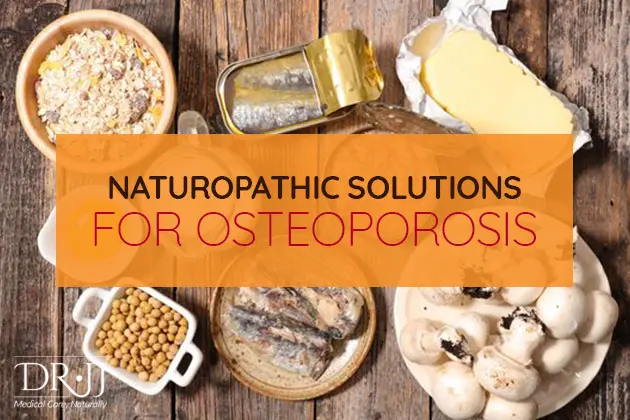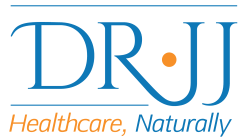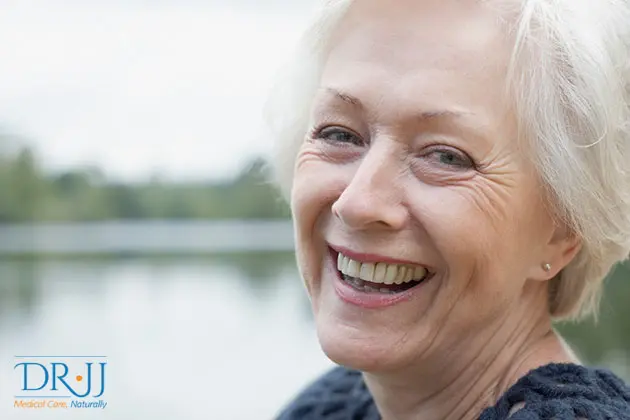
You use the bones in your body for just about every task you do on a daily basis.
You use them for walking, for typing on a computer, or for when you are sitting and relaxing watching your favorite movie with some health snack food.
That’s why it’s so detrimental to a person’s functioning when they’re dealing with a bone disease.
This happens with osteoporosis.
Osteoporosis happens when your bone mineral density and bone mass both decrease.
This can make it difficult to perform the everyday functions you once found easy.
Osteoporosis can also increase your risk for other diseases, and broken bones.
The good news is that there is help out there, and there are many vitamins, and nutrients within the food you eat that can help provide treatment for osteoporosis.
These natural solutions include: vitamin D, calcium, and protein, among other things.
In a recent video on osteoporosis, I had the chance to delve into some of the naturopathic solutions that I use in treating my patients.
Below is an overview on this condition, including my top three supplements to help prevent this condition.
What Is Osteoporosis?
Osteoporosis is described as low bone density or porous bones, rather than dense, solid bones.
This disease typically occurs without symptoms, which means it is known as a silent disease.
Osteoporosis is pathological and is accompanied with the risk of a fracture.
Doctors especially worry about a fractured hip in older patients.
These fractures occur at a high rate in both older men and in postmenopausal women.
Older patients are at a higher risk of mortality due to the risk of falls from this condition, as well as the risk for other chronic diseases that have a high risk of death.
Osteopenia is the precursor to osteoporosis, and is characterized by a decreased bone density, but it isn’t low enough to be considered “low”.
What Causes Osteoporosis?
Osteoporosis occurs when your bones lose minerals (namely calcium), at a rate where the body cannot replace them quicker than they are lost.
Osteoporosis occurs when estrogen decreases, resulting in a much lower calcium buildup in the bones.
This can be caused by having a hysterectomy or ovariectomy, or from going through menopause.
RELATED: Naturopathic Support For Surgery Preparation
Menopause, on average, will hit women at the age of 51 to 52, and this is when most women start running into problems with bone density loss.
Men can also get osteoporosis, but it’s far less common.
Osteoporosis usually occurs in men who are not physically active or have a genetic predisposition to the condition.
There are certain conditions that increase your risk of developing osteoporosis.
The conditions for an increased risk of osteoporosis include:
- Lowered sex hormones (regardless of gender)
- The presence of a thyroid disorder
- Overactive adrenal glands
- Eating disorders
- Having had gastrointestinal surgery
- Old age
- Certain medications
- A sedentary lifestyle
- Poor diet
- The presence of environmental toxins in your body
- Chronic anxiety and stress
- Being a woman
RELATED: Naturopathic Support For Surgery Recovery
There are also specific health conditions that can increase your risk, such as:
- Celiac disease
- Digestive issues like IBS
- Liver issues, like nonalcoholic fatty liver disease
- Certain types of cancer
- Other bone disorders
What Can You Do To Prevent Osteoporosis?
Just because you may be at an increased risk of osteoporosis due to one of the factors above, doesn’t mean there’s nothing you can do to reduce this risk.
The best thing you can do to prevent osteoporosis is to build your bone density.
You can build up bone density quite quickly with weight-bearing exercises such as heavy lifting, walking, jogging, or any other sports activity that stresses your bones.
Some activities may not be to reduce your risk of osteoporosis enough though.
For instance, if you’re a swimmer, I’m afraid your activity of choice doesn’t strain your bones enough to increase their density.
In order to increase your density when swimming, you will have to fit in some weight training (or another exercise) in order to build your bones.
Another good habit is eating foods that are high in calcium, such as spinach, broccoli, dairy, or sesame seeds.
You’ve probably heard that calcium is good for your bones since you were a little kid, and this is true.
Calcium is not only good because it can help strengthen your bones, it can help reduce your risk of osteoporosis and other bone disorders.
Spinach in particular is good for you because it includes calcium as well as glutathione.
This is an antioxidant that can help to prevent bone stress, and reduce your risk of developing osteoporosis.
Therefore, glutathione is good for your bones and can help not only prevent osteoporosis but other bone disorders.
How Do You Know If You Have Osteoporosis?
The symptoms of osteoporosis are usually silent.
For this reason, it may be difficult for you to tell if you have osteoporosis or not.
There may be some early warning signs of osteoporosis though.
These can include a reduction in your grip strength, brittle fingernails, or other fingernail conditions.
If you start to have trouble with walking, or any other tasks that use your bones, or if you feel your bones are weak and are experiencing fractures more often, consider getting tested.
You can find out by going for a bone scan, which can be ordered by your family doctor.
Often doctors will start sending you around the age of 45, and every two years thereafter.
However, depending on the results of the last scan or individual patient history, your doctor may have you go more regularly, particularly if you’ve had your ovaries removed.
A bone density scan is a simple procedure similar to getting an x-ray done, and is not invasive or painful at all.
Dr. JJ’s Preventative Supplements For Osteoporosis
Other than exercise and diet, there are several supplements that I regularly recommend to my patients in order to prevent a loss in bone density, and we generally see excellent results.
Supplements are an excellent way of leveraging preventative medicine to avoid the complications of life and aging as long as possible.
1. Calcium And Magnesium With Vitamin D
Calcium and magnesium supplements are some of the best you can buy, especially if you can find them with vitamin D.
Calcium, magnesium, and vitamin D are all important for your bone health.
Calcium is not only good for your bone health but it can also help with some of the diseases that are risk factors for osteoporosis.
This is because calcium is good for your heart and can also help with hypertension, skin conditions, diabetes, and certain types of cancer.
A good guideline for calcium intake for women is 1,000mg for premenopausal and 1,500mg for postmenopausal women.
Men should take in between 1000mg and 1200mg a day.
Intake depends on your age and other factors and a naturopathic doctor may be able to help figure out your recommended intake.
In terms of foods, calcium is found in many foods, including: dairy, cheese, yogurt, squash, and salmon.
The National Osteoporosis Foundation has more information for you on calcium and vitamin D and how they can help you to prevent bone density loss.
For Magnesium, a magnesium deficiency is directly linked to osteoporosis by acting on bone cells.
These actions by magnesium can also indirectly affect bone density by impacting the activity and secretion of your parathyroid hormone and promoting low-grade inflammation.
Therefore, increasing magnesium in your diet may help to reduce your risk of osteoporosis.
If you want to increase your magnesium intake, aside from supplements, you could increase your intake of certain foods.
These foods include: spinach, nuts, whole grains and seeds.
2. Boron
Boron is a trace element and macronutrient that has been proven to be crucial for the growth and maintenance of your bones.
Boron dramatically reduces calcium loss, and plays an essential role in osteogenesis, which is basically bone development and regeneration.
You can find boron in numerous foods.
If you want to take care of your bone health you may want to consider eating apples, coffee, cooked beans, or potatoes to get some boron into your diet.
3. Vitamin K
Vitamin K is actually a group of compounds that help blood clot, and may also help improve bone density.
Vitamin K1 can be found in dark, leafy vegetables, and vitamin K2 is found in foods from the dairy group.
There has been a lot of interest in studying the effects of vitamin K on both bone mass density and fractures in post-menopausal women.
Current results look promising, but a clear correlation between this treatment (either by itself or as a complimentary treatment) remains unproven.
Vitamin K may also reduce your risk of heart disease by preventing your arteries from hardening.
Vitamin K may reduce your risk of osteoporosis through a reduction of your risk of heart disease, since heart disease is a risk factor for osteoporosis.
More research on vitamin K and its connection to osteoporosis is needed.
Questions? Ask Dr. JJ
If you’re a postmenopausal woman, or have had a hysterectomy or ovariectomy, it’s important to keep a pretty close eye on your bone mass density.
When looking at your bone mass density, you should be looking at ways to help prevent fractures.
Call now to book your consultation with me, Dr. JJ, and let me help you navigate the supplements to find the one that is best for you.
Together we can make sure your bones stay healthy as long as you need them.
Book your appointment with me, Dr. JJ, today.
If you have questions about naturopathic medicine, or you’d like to take your first step into the world of naturopathy, contact me, Dr. JJ, and let’s book an appointment.
Yours in health,
Dr. JJ Dugoua, Naturopathic Doctor
600 Sherbourne St, Suite 315,
Toronto, ON M4X 1W4
-https://goo.gl/maps/6VDXwiCihRpDRo5A9
Dr. JJ Dugoua is a naturopathic doctor in Toronto and has a PhD in Pharmaceutical Sciences. His clinic provides solutions for many health concerns and has a special focus on thyroid health issues.



